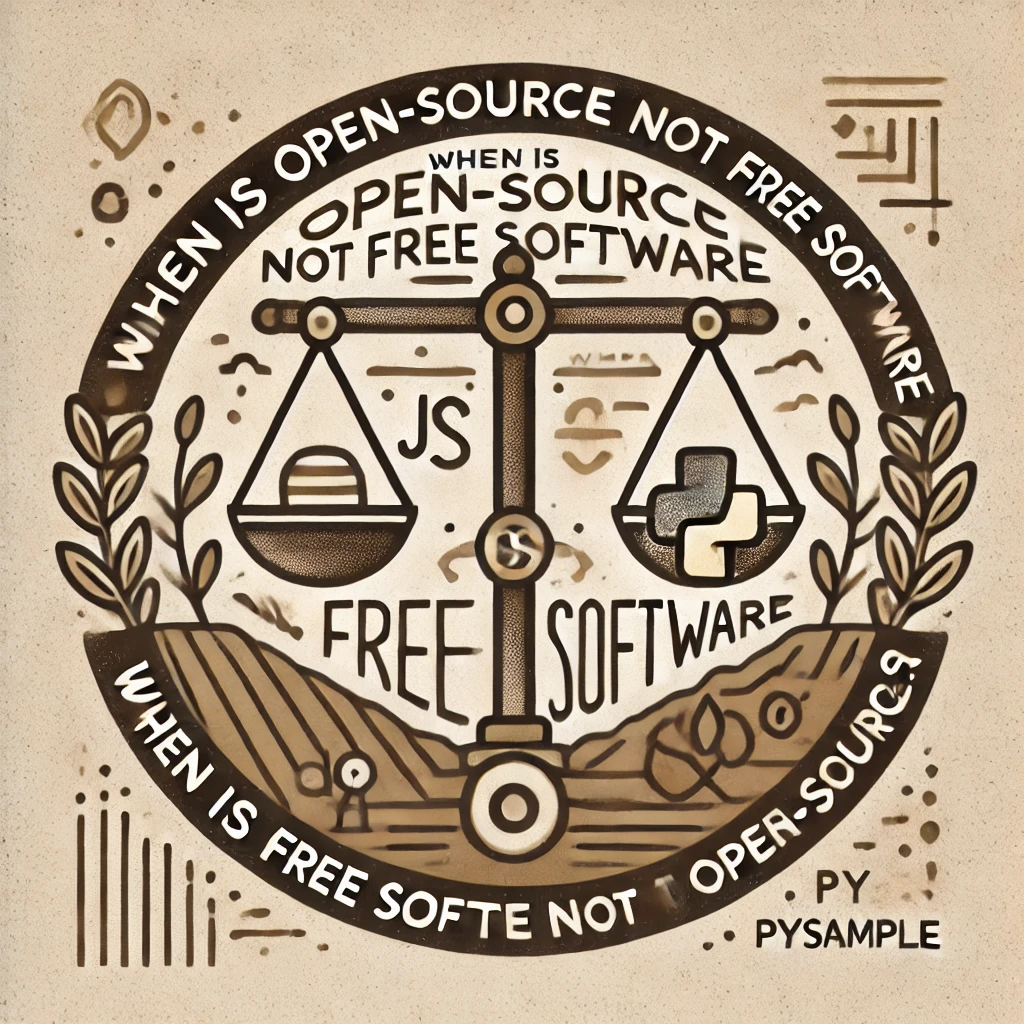When is open-source not free-software, when is free-software not open-source

OSI Approved Licenses not recognized by the FSF as "free":
- Netscape Public License (NPL) FSF considers the NPL "non-free" because it includes a clause that allows Netscape to release a given piece of code as proprietary software in future versions
- The NPL was followed by the MPL (Mozilla Public License) that both the OSI and the FSF agree on
- Reciprocal Public License (RPL) - FSF's considers "too restrictive", because:
- It puts limits on prices charged for an initial copy
- It requires notification of the original developer for publication of a modified version
- It requires publication of any modified version that an organization uses, even privately
FSF recognizes as "free" but the OSI has not "approved":
- Free Art License (FAL) - The FSF considers the Free Art License to be a free content license, suitable for artistic and general cultural works. However, it is not listed among the OSI-approved licenses, likely due to its focus being outside the typical realm of software.
- CC0 ("No Rights Reserved") - While not a license that explicitly aims to be a free software license, CC0 is recommended by the FSF for dedicating software to the public domain. The OSI has debated CC0 and decided not to approve it, primarily due to concerns about the effectiveness of public domain dedications in certain jurisdictions.
For practical purposes, anything considered "free-software" by the FSF is also an approved licenses according to the OSI.
The FSF exists to promote their "software freedom ideology", encapsulated in their "GPL" family of licenses. Any software in the public domain, "permissively licensed", or otherwise licensed with less requirements than the GPL-itself, that can be packaged along side GPL licensed software and thus all re-distributed under the GPL license will be considered "free" by Richard Stallman's Free Software Foundation. This point is rarely if ever made by the FOSS community.
There is virtually no difference between "free-software" and "open-source".
O'Reilly interviewed the Open-Source Initiative's co-founders and asked:
The FSF exists to promote their "software freedom ideology", encapsulated in their "GPL" family of licenses. Any software in the public domain, "permissively licensed", or otherwise licensed with less requirements than the GPL-itself, that can be packaged along side GPL licensed software and thus all re-distributed under the GPL license will be considered "free" by Richard Stallman's Free Software Foundation. This point is rarely if ever made by the FOSS community.
There is virtually no difference between "free-software" and "open-source".
O'Reilly interviewed the Open-Source Initiative's co-founders and asked:
Is the distinction between "free software" and "open source" still meaningful
To which the OSI's co-founders Bruce Perens replied:
It was always a mistake. Open Source and Free Software are two different ways of talking about the same thing. One is written to appeal to programmers, the other to business people. Once they are into Open Source, the business people start to appreciate Stallman's ideas.
And Eric S Raymond replied:
If you're primarily interested in either producing superior software or describing the collaborative behavior of people who produce better software, then the distinction is practically meaningless.
I'd say "completely meaningless," except that there are two rarely-used licenses (the NASA Open Source Agreement and the Reciprocal Public License) that OSI certifies "open source" and FSF says are non-free